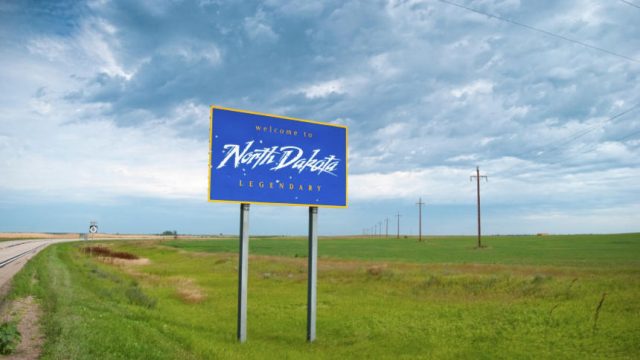Kevin Cramer: Look to North Dakota for Inspiration on National Tax Reform

The United States is emerging from the slowest economic recovery in modern history, but you wouldn’t know it living in North Dakota. Whereas wages have stagnated across the country, the household income in our state exceeds the U.S. average by close to $4,800.
Talking heads in Washington love to dismiss our state’s success as merely due to the boom of Bakken oil. But unlike the Roughrider State’s staunchly pro-business legislature, which implemented the policies necessary to earn the 2017 title “Best State to Start a Business,” they seem to have forgotten the foundation of economic achievement. When it comes to business-friendly policies like low taxes, if you build it, they will come.
In the early 2000s, Microsoft could have easily elected to expand its Silicon Valley or Seattle campuses, remaining squarely in the West Coast mecca of digital technology. But instead, the $290 billion tech giant came here, to Fargo, N.D., and brought with it thousands of jobs. Last week, when Microsoft announced its multi-million dollar TechSpark initiative to increase high-speed internet access, improve computer science education, and spark IT careers in rural communities across the country, the company chose Fargo to roll out its initiative.
Microsoft didn’t choose North Dakota because of oil or because we’re the nation’s leading producer of several agriculture
[mks_pullquote align=”right” width=”300″ size=”24″ bg_color=”#ffffff” txt_color=”#000000″]Surely, as congressional leaders prepare to fill in the blanks on federal tax reform, they will look to model tax cuts after American success stories such as North Dakota.[/mks_pullquote]
And expand they have. North Dakota’s 73,000 small businesses now employ about 58 percent of the workforce, and are responsible for more sustained job growth in the past two decades than was achieved in nearly any other state in the nation. Far from piggybacking on a prosperous energy sector, our small businesses are as diverse as ever: mom-and-pop retail, healthcare, hospitality, and professional service positions alone could employ almost half the population of Williston, N.D.
It shouldn’t come as a surprise. After cutting individual and business taxes five times since the turn of the century, North Dakota claims some of the lowest tax rates in the country. The majority of our small businesses pay no more than 3.9 percent of their income to the state, and those who do wish to expand are spared the “franchise” or “privilege” tax often levied in other states.
The Microsofts of the area fare well, too: At just more than 5 percent, North Dakota’s business tax is the fourth-lowest in the nation. As pioneering companies find success in the Bakken and beyond, it’s our own local businesses and economy that thrive off of increased demand and the friendly tax policies which allow them to sustain it.
Surely, as congressional leaders prepare to fill in the blanks on federal tax reform, they will look to model tax cuts after American success stories such as North Dakota.
The federal tax code as it now stands, all 70,000 pages of it, caters to the economic climate of the mid-1980s, when Windows meant nothing more than a panel to let in fresh air. Since then, technology-driven globalization has altered the U.S. economy forever.
In North Dakota, we understand that our state is competing for the best minds in the country. Although most major U.S. companies at least partially conduct operations abroad, the current federal tax structure doesn’t incentivize them to bring their profits home.
With the U.S. boasting the industrialized world’s highest corporate tax rate of 35 percent, multinational American companies face a strong deterrent against repatriating their overseas earnings. Apple CEO Tim Cook professed that he would “love to” bring home the company’s roughly $181 billion in foreign profits, were it not for the U.S.’s prohibitive corporate tax. When you consider the global average corporate tax rate of 22.5 percent, it’s no wonder the IRS is left empty-handed.
President Trump proposed cutting the corporate tax rate to 20 percent, which would be a good first step towards putting the nation on better ground to compete with Europe and Asia. And though members of Congress have only a few weeks left in the legislative session to solidify the details for federal tax reform, I’m hopeful we can build the business-friendly tax system that enterprising young Americans and immigrants deserve.
Pro-business policies allowed Microsoft to bet on Fargo. If businesses large and small have the guts to bet on their communities, Congress should have the guts to bet on them.




